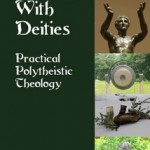June, and my yard is full of leaves again. I’ve been thinking about trees, about forests, dense and wild and other. It’s funny but I can’t think about forests without thinking about the branching paths we take through them, or maybe, the paths that lead us deep into the heartwood. Any forest is a labyrinth, a fractal pattern, complex at every level. Choose a path.
***
I’m reading a book from 1997 on ergodic literature, Cybertext by Espen J. Aarseth. “Ergodic” looks like the gods might be hiding in the text, but Aarseth states the word“derives from the Greek words ergon and hodos, meaning “work” and “path.” Unlike a traditional novel or movie, in ergodic literature, narrative is interrupted and the reader must make active choices when the paths fork. The easiest example might be Choose Your Own Adventure books, which I devoured as a kid. Interactive games are obvious examples. The Tarot deck is another. Ergodic literature is wildly fun, juicy, and completely intense all at once:
“you are constantly reminded of inaccessible strategies and paths not taken, voices not heard. Each decision will make some parts of the text more, and others less, accessible, and you may never know the exact results of your choices; that is, exactly what you missed.”
Every day we wake up is Choose Your Own Adventure, wildwood, labyrinth, if we have the eyes to see. I live on the border of grassland and woodland, in Southern Wisconsin. Or: I live in deep forest, the same deep forest we all wander through, that most of us have forgotten. Choose your reality; both are true.
***
Trees catch the wind and give it voice. Words catch at thought. These words like twiggy fingers snag on ghosts and gods. I read over my journals and weave dream and shadow together, stitch that cloth to noon o’clock until everything is weightless, suspended in blue.
The house swings up through ash trees,
to hang in light-scalloped air and interstice,
a lacework net of leaf and gap exactly
like a well-told joke that dangles us
over the pit of the true strange…
***
Sometimes I think of myself as a guide of sorts—
A guide? You? Wayland laughs.
No, I think not—a translator, maybe.
***
Choose a path. We have three large and lyrical ash trees in our yard. Someday not too far off they will all three die from the emerald ash borers now found in Dane county. In one of them, we’ve started hanging bird houses, round little doors peeking out among the green, darts of color and touches of whimsy. I know a woman who tucks her poems into an old birdhouse in her garage. Sandwiched between generations and caring for multiple relatives, she has no time to revise or send work out into the world, and she has no space in her house to call her own. I look at my birdhouse tree, the multiple doorways. Maybe I will start to poke my poems into those apertures, just as I poke them into these essays. Maybe I will shred them and let the birds weave them into their nests, along with my hair and the straw I never spin into gold. Offerings.
***
…Just like a joke,
the crack of alarm gives way to laughter’s gasp.
No one told us this was the day
our possessions would go weightless,
our footsteps sound across suddenly taller floors.
***
Paper comes from trees. All the leafy, dream-soaked notebooks I have written my way through—are my words worth the death of the trees it took to house them? They’d better be.
Literature is a combinatorial game that pursues the possibilities implicit in its own material, independent of the personality of the poet, but it is a game that at a certain point is invested with an unexpected meaning, a meaning that is not patent on the linguistic plane on which we were working but has slipped in from another level…
–Italo Calvino
(The gods are not even hiding.)
***
Is mine a theology of the Wildwood? Or is it a theology of poems? Of fractals?
Same thing. He’s reading over my shoulder.
Sometimes the Adventure chooses you.
***
“Work” and “path” may be how we locate our gods. Love is work. Poems are work. Living well is work. Asking the big questions and staying ready for the answers is work. Work worth doing. Halfway through the writing of this, I look up from my screen and realize how much of the art in my house features trees. Abstract, realistic, partial or completely representational, trees have been with me a long time, I guess.
In my parents’ house, the walls are covered with birds.
















